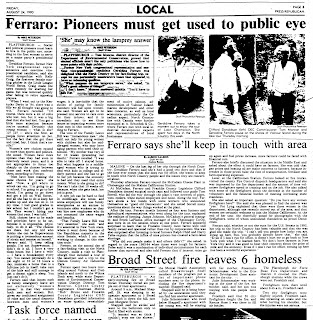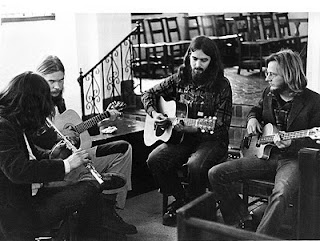Now We Are Six (Months)
Vaska turned six months old a couple of weeks ago and I thought I'd document the little fellow's progress.
He seems to be through the most outrageous growth period, but he still surprises anyone who hasn't seen him for a couple of weeks. He weighs about 70 pounds; I'm guessing he'll be around 110 when he's through, but I wouldn't be surprised if he differed by 10 pounds either direction. Right now, he's rangy and his feet and his leg joints are still outsized, so he'll add a bit more height and considerable weight before he's through.
He's like a gangly 13-year-old and sometimes can run with the pack at the park and then suddenly, particularly on a turn, will lose his footing and will at least go into a slide if he doesn't wipe out completely. This morning, he had a couple of times when he tried to rocket up the steep river bank and had to take a second shot at it.
He really is at a "tweener" stage, where he'll wrestle and run with the big dogs, but then, at the last moment, give a funny little puppy pounce, because he still is just a baby. Similarly, he has become a real dog companion to me, and I can see the adult dog he's going to be, but then, suddenly, he's a puppy again -- often at night, when it's time to go to sleep and he suddenly decides it's time for a tickle-fight and starts biting my hands. As with all good tickle-fights, the initial annoyance quickly dissolves into fits of giggling and the chances of going to sleep all but disappear.
Here he is with two of his best buddies, Tanner the Pit Bull and Bogey the Chocolate Lab, all having a tug at a foot-long chunk of knotted rope. He and Bogey will go long distances, each holding an end of the rope or stick, trotting along as if they were yoked like oxen, as Bogey's owner and I walk the length of the dam site park, which is where we all get together while the dog park is closed for mud season.
With Tanner, the game is more apt to be wrestling, though they enjoy a good tug, and actually, all three dogs really enjoy keepaway more than actual tugging. But Vaska's ability to learn has been very evident in his wrestling, and Tanner's owner and I have watched him pick up moves and then pull them off himself in the next round. Tanner is a little over a year old and they first met when Vaska was still a wee pup. Tanner was very gracious in scaling down to the puppy's abilities then, but all that is over now as they merrily fling each other around.
What is particularly interesting with these three is how generous they are about alternating who is dominant and who is submissive at any point in the game. They never lose their tempers with each other and are quite happy on top or bottom, just so long as the game is fast and loud.
Here are Vaska and Bogey sharing a duck retrieving dummy which floated down the Connecticut River from god-knows-where and was around the park for more than a week, providing lots of good fetching and fighting over. One advantage of the dog park -- which opens again this coming weekend -- is that dog toys stay there until they begin to fall apart, while, in an open, unfenced park like this one, well-meaning people think they're seeing litter or abandoned objects and pick them up. Alas, the duck disappeared well before it had been completely dismantled.
In 25 years of owning them, I've never had a ridgeback that I thought was particularly clever. They're not stupid dogs, but they are hounds and no hound has ever won a Nobel Prize for innovative thinking. However, Vaska not only learns wrestling holds but can think his way around things, and I am not used to that. The back porch is covered but open, and I had a cable slung around one of the pillars so he could go out in the unfenced yard, enjoy the sun and gnaw on a bone. But I realized he was losing more than a foot of freedom by virtue of that pillar, so I tied a length of rope around the pillar and clipped the cable to that.
And we promptly had our first jailbreak, as the little dickens figured out that, if he gnawed through the rope, he'd be free, albeit "free" trailing 20 feet of cable behind him. Fortunately, he didn't go far, but he continued to ponder the matter and, the next time we went to the post office, by golly, didn't I come back out to find him attempting to gnaw through the leash that was tied to a lamppost there?
He now has a chain lead and I've hidden the bolt cutters.
His life is extremely harsh. I get up between four and five in the morning and spend the next two or three hours working on ComicStripoftheDay.com. However, if you picture my faithful hound sleeping at my feet, you are deluding yourself, because that would require the faithful hound to get out of bed and walk into the next room, which is far too much effort for that time of day. He gets up around seven, usually when I've filed the blog and am starting to rattle pans in the kitchen.
He has some breakfast while I catch up on the rest of my on-line reading for the morning and then we head down to the park for an hour or more of walking and playing with whoever has turned up. And there's a second session in the late afternoon before dinner and an early bed time around 8:30 or 9. So, of the roughly 13 hours he's out of bed, three or four of them are spent at the park, which is a pretty good ratio.
However, last week, we were recruited to doggy sit for Cousin Puck while Jed and family went down to NYC for a couple of days. During that sojourn, he and Puck managed to stretch the keepaway/tugofwar time to something more in the nature of seven hours a day.
That worked well because, while the property is not fenced, there is an Invisible Fence and Puck has the collar that keeps him inside it. So both dogs stayed on the property. Until we went back for Easter dinner and Vaska decided to test a theory he had apparently been pondering, which is that only Puck has to worry about the Invisible Fence. However, the neighbor was very nice and brought him back, since she didn't need help putting in her garden after all.
Here is two minutes and forty seconds of the aforementioned seven hours, shot during our dogsitting gig.
































